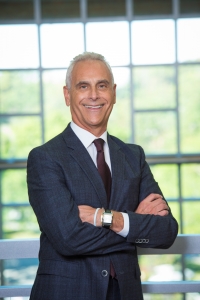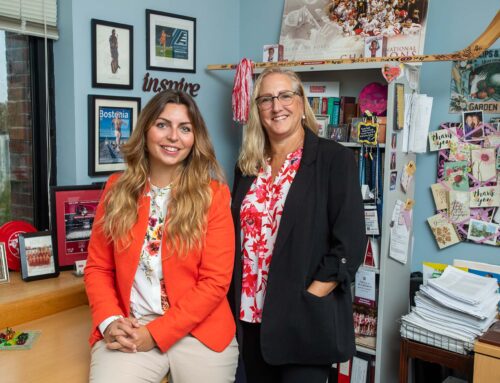Worcester Telegram & Gazette
January 2017
Stuart Koman first founded Walden Behavioral Care in 2003, after the Waltham Hospital closed. He felt that the hospital’s mental and behavioral programs were important and needed to be saved. The program has an education and research center and two main units – a general acute psychiatric program with 24 beds for patients aged 16 and older, and a program focused on eating disorders. Over 300 Walden employees have treated over 15,000 patients. There are 11 locations – two inpatient programs and one residential center in Waltham, and eight outpatient clinics in Waltham, Braintree, Peabody, Milford, Worcester and Amherst, as well as South Windsor, Conn., and Guilford, Conn.
 What sets Walden Behavioral Care apart from other treatment facilities?
What sets Walden Behavioral Care apart from other treatment facilities?
“We’re pretty different from anybody else because of the focus of what we do. While we do have the general psychiatric unit, which is not dissimilar from other programs, most of what we do now is really focused on the area of eating disorders. Everything from A to O – anorexia, bulimia, binge-eating disorder, and overweight and obesity. We are really the only ones in New England that provide a full system of care for the treatment of these conditions – everything from inpatient to outpatient and everything in-between. For us, what that means is hospital-based, residential for 24-hour care, but in a therapeutic environment and not in a medical environment, and then we have our seven clinics throughout MA and CT. What happens there are our day and evening programs, specific programs for adults, kids, and people with compulsive overeating conditions.”
What does the general psychiatric unit have to offer?
“It’s been in existence for a long time, ever since it was part of the old Waltham Hospital before it became part of Walden Behavioral Care. It’s a very welcoming program. I think people who go there are relieved because it feels less scary than they thought it would. It’s in a nice environment, it’s easy to get to at the intersection of Route 128 and the Mass Pike, and it has a very friendly, but very skilled group of staff in an always-active treatment environment. There’s group therapy, behavior therapy, medication, management, and psychiatry, so there’s full-range and a lot of focus on how the treatment will be continued once somebody leaves that environment.”
How do the treatments you offer differ from treatments someone might receive in a similar ward in a hospital?
“They’re continual. That’s what sets Walden apart from other organizations. What we have done is design a program where an individual really doesn’t have to go look for any other services. They can step down from one level of care to the next to the next to the next, and completely continue treatment under our philosophy of care, until they’re better. The whole idea is that it’s a rational road to recovery, where the person is not expected to figure out what’s next, it’s already there for them and they work their way through. It’s unique because it all happens under one administrative umbrella, and from the same medical and psychological approach. You’re not starting over when you move on to the next program – everything you’ve already accomplished is just going to be continued and your clinicians will know what’s been done.”
How do you involve yourself and your experience in the organization as its founder?
“I have a doctorate in clinical psychology and my focus within my clinical practice in the early years was with adolescents, teens, and families. I take a very family-oriented approach and when you work with families, you really come to understand the whole dynamic of how things work between people. You don’t really look for the causes of an illness within a single person, you look for how the whole organization of the family works, or doesn’t work, to get them where they’re supposed to be as they go through life and each developmental milestone. We’ve applied that to our whole treatment, so that all of our programs are very family-oriented. That’s highly the case when our patients are younger, but it does still continue as they become adults. From the earliest of days, I was always interested in people. Truly I thought I was going to be a clinician forever. Now I bring the ability to bridge between the clinical enterprise and the business enterprise.”
How do you balance the business side of healthcare with the therapeutic side?
“The real trick is creating a healthy business around a healing environment, which is a very hard thing to do, and inspiring clinical providers, people, who work here to feel good about what they’re doing, so that they can provide that healing environment. If you don’t have a healthy business around a healing environment, it’s all going to crumble. I learned that lesson pretty early on in my internship, and then at a state agency that wasn’t doing well from a financial point of view, and actually had to close some programs that I was working on and felt were unbelievably great programs. The non-profit that we operate now is geared towards awareness and prevention activities, and education. Our entire clinical staff is proud of those efforts because it’s how we give back. Rather than treating the problem, it’s getting to the source before it becomes a huge problem.”






